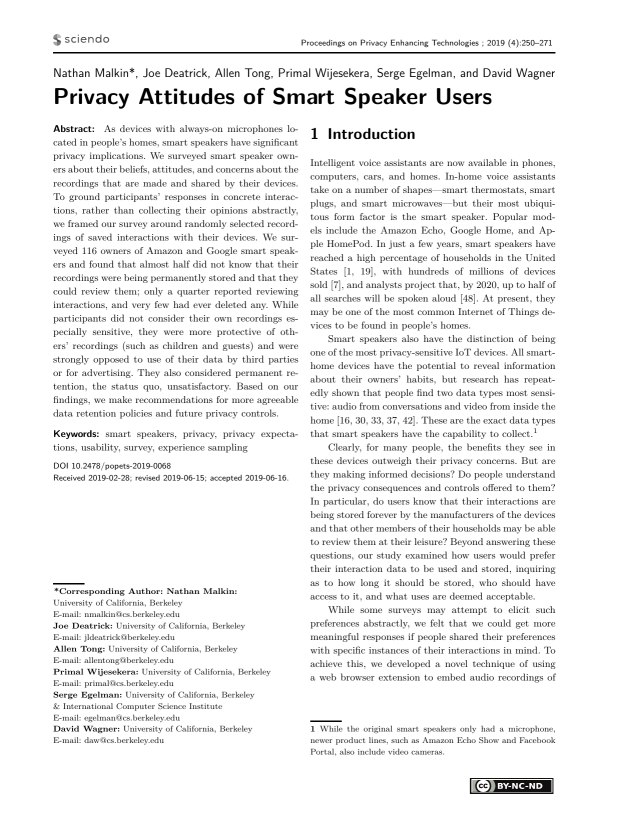Privacy Attitudes of Smart Speaker Users
Authors: Nathan Malkin (University of California, Berkeley), Joe Deatrick (University of California, Berkeley), Allen Tong (University of California, Berkeley), Primal Wijesekera (University of California, Berkeley), Serge Egelman (University of California, Berkeley & International Computer Science Institute), David Wagner (University of California, Berkeley)
Volume: 2019
Issue: 4
Pages: 250–271
DOI: https://doi.org/10.2478/popets-2019-0068
Abstract: As devices with always-on microphones located in people’s homes, smart speakers have significant privacy implications. We surveyed smart speaker owners about their beliefs, attitudes, and concerns about the recordings that are made and shared by their devices. To ground participants’ responses in concrete interactions, rather than collecting their opinions abstractly, we framed our survey around randomly selected recordings of saved interactions with their devices. We surveyed 116 owners of Amazon and Google smart speakers and found that almost half did not know that their recordings were being permanently stored and that they could review them; only a quarter reported reviewing interactions, and very few had ever deleted any. While participants did not consider their own recordings especially sensitive, they were more protective of others’ recordings (such as children and guests) and were strongly opposed to use of their data by third parties or for advertising. They also considered permanent retention, the status quo, unsatisfactory. Based on our findings, we make recommendations for more agreeable data retention policies and future privacy controls.
Keywords: smart speakers, privacy, privacy expectations, usability, survey, experience sampling
Copyright in PoPETs articles are held by their authors. This article is published under a Creative Commons Attribution-NonCommercial-NoDerivs 3.0 license.

